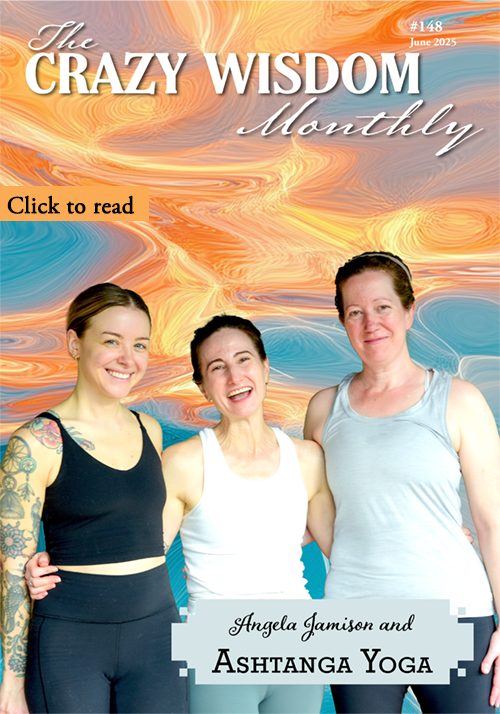by Ginny Dodge
Plant-based remedies have been used for centuries. Chemical constituents found in plants are now synthetically created in sterile, replicable laboratory environments. Those medical advances have done wonders to further research and understanding of the intricacies of the human body. So, why has a sudden resurgence in using essential oils saturated newsfeeds, yoga studios, moms’ clubs, and more?
As we contemplate the popularity of oils, consider health from a sevenfold platform: Physical, Intellectual, Emotional, Occupational, Environmental, Spiritual, and Social.
Physical
As more medical professionals embrace an integrative approach to healing the body, preventative care and positive habits are keenly monitored. Recently, the complementary use of essential oils has piqued interest in the western medical field.
Therapeutic quality essential oils can work alongside bodily functions to support physical wellness. Lavender soothes sore muscles. Frankincense focuses healthy inflammatory responses. Immune protection can be dialed in with clove, cinnamon, and orange oils. This quality is ensured through third-party laboratory testing. Take care to seek out mindful community educators, informed experts, and research publications to widen your understanding of oils.
Intellectual
Comparison, change, and advancement have taken charge in this capitalist, technology-driven world. The consequences are now becoming clear – trouble focusing, heightened anxiety, and overstimulation.
Oils offer a unique and fast-acting approach to retrain the brain’s neural passageways. When inhaling the scent of an oil, the olfactory glands are stimulated. Nearby, the limbic center of the brain is also activated. This is where memories, emotions, and primal patterns stem from. Diffusing oils like cedarwood or frankincense can help harness focus. Inhaling oils such as lavender and chamomile soothe anxious tendencies. Oils can make a huge difference in developing healthy sleep habits, applying to the bottoms of the feet and diffusing for aromatic/respiratory benefit.
Emotional
Emotional well-being has taken a toll during recent political and social change. Many people note feeling lonely, disconnected, and unable to build lasting friendships despite varied modes of communication. Here, too, holistic alternatives can promote connection and emotional growth
When the body suffers emotionally, it also suffers physically. As the brain identifies situations, resulting emotional responses are sent to the cells by way of neuropeptides. These messages influence activity within the cell. Release and healing are also available at the cellular level using oils. Citrus oils can boost mood, tree oils lead to peace and grounding, and floral oils can bring about relaxation and renewal. While the explanation behind these reactions is incredibly detailed, the application of oils through aromatic and topical use is easily managed with resources and mentors.
Occupational
Relations with co-workers, job cuts, pressure to perform, promotions, and numerous intricacies challenge employees to perform at peak levels. Stress relief becomes paramount. Using essential oils helps to calm physical discomforts from repetitive strain at work – typing, sitting, standing, lifting, et cetera. Diffusing oils in an office setting can boost mood and the ability to see a task to completion. Promoting healthy environments and strong immune responses through protective essential oils are great additions to a work routine.
Environmental
The beneficial chemical profiles of essential oils are well suited for cooking, cleaning, and care. When using food-safe therapeutic-grade oils, cooking becomes even more exciting. Consider an orange oil infused whipped topping, adding cilantro and lime oil to guacamole, or a rosemary and thyme oil marinade for a main course. For those interested in all-natural cleaners, vinegar and citrus oil pairings offer great options for countertop sprays, floor cleaners, and disinfecting wipes. Place a few drops of lavender or lemon essential oil on wool dryer balls to naturally scent laundry. The applications are endless.
Spiritual
It is important to note that oils can benefit a lifestyle regardless of spiritual beliefs. What works for one religious practice may also be impactful in a different application. Try massaging a drop of frankincense or sandalwood oil between the eyebrows, focusing on connection to a higher power through the third eye chakra. Diffuse grounding oils like arborvitae or cedarwood during meditation or yoga practice. Anoint holiday candles with rose oil or orange oil to bring a sense of love and abundance into the home.
Social
Connection and intimacy are crucial foundations to many people’s happiness. Recognize that mindful wellness principles go hand in hand with essential oil practice. Deep breathing to curb anger and rash decisions can be enhanced with calming oils. Meditation to lean into silence and connection with nature are influenced with spice and tree oils. Diffusing refreshing citrus aromas in the workplace can energize and bring a sense of happiness.
Remember, this can be a lot of fun! Have a group of friends over for an oil-themed spa night. Cook with oils and share new cuisine with family. Encourage children’s health and imagination with sensory play dough or choosing an oil to apply together on the bottoms of the feet before bedtime. Oils remind us that we create our reality through daily actions and choices.
Ginny Dodge is a holistic educator and owner of The Essential Artist. If you are curious or don’t know where to begin with oils, contact her at ginny@theessentialartist.com or visit the website www.theessentialartist.com.




























































































































































































Awareness helps us understand and neutralize situations, allowing them to feel less personal. Unconscious patterns like bullying, judgment, and anger become conscious as our awareness grows. As the saying goes, “hurt people hurt people.” When awareness grows, and we become conscious of our emotions, we are more able to transcend behaviors that cause us (or others) to be hurt